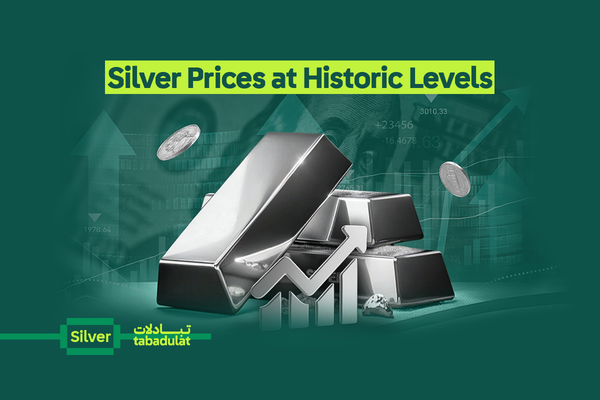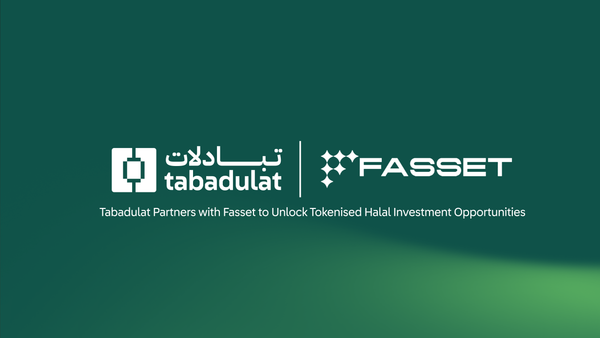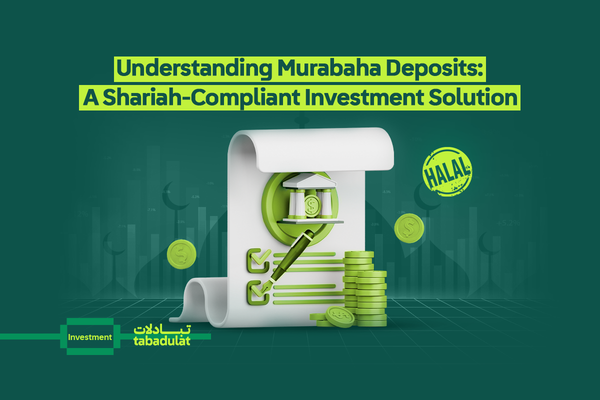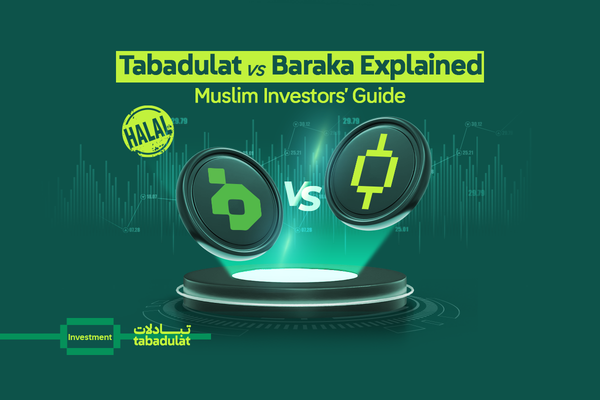After Breaking the Record... Is Silver Halal Investing?
Silver hit a record $52.58/oz in October 2025, sparking global demand. But is trading silver Halal? Explore how Muslims can invest ethically through physical silver, Shariah-backed ETFs, and AAOIFI-approved platforms like Tabadulat.
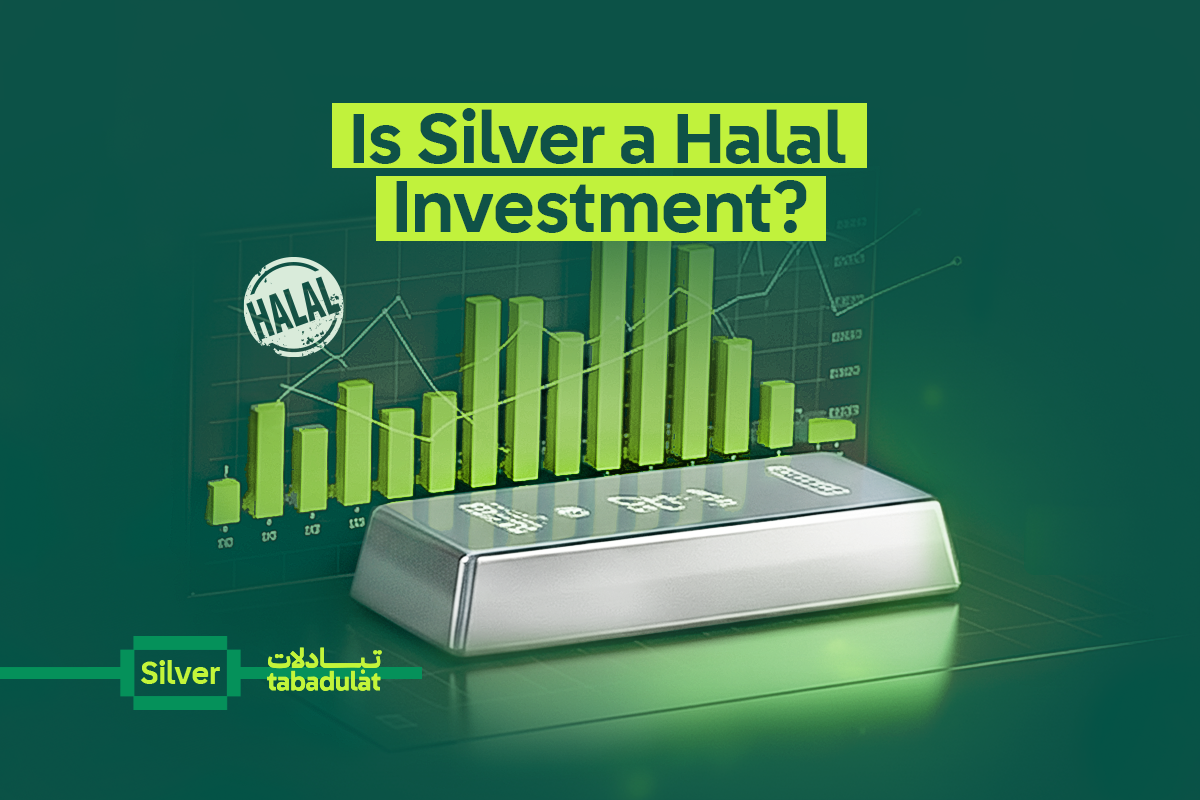
Silver’s Record-Breaking Rise
Silver has just made history. Spot prices touched an all-time high of $52.5868 an ounce in October 2025, surpassing a record that had stood since January 1980, when the billionaire Hunt brothers famously tried to corner the market. A historic short squeeze in London added fuel to the rally, with traders rushing to secure silver bars by air freight, a luxury usually reserved for gold.
As demand for safe-haven assets soars and silver lease rates hit more than 30% on a one-month basis, the world’s second-most precious metal has stolen gold’s spotlight. But for Muslim investors, the key question remains: Is silver still Halal to trade, and how can it be done ethically?
Let’s explore silver’s powerful rise and its position in Islamic finance, from physical bars and Halal ETFs to Shariah-screened platforms like Tabadulat.
Silver’s Place in Islam
Silver, like gold, is among the six Ribawi items mentioned in Hadith, which means it is subject to strict trading rules in Islam. These rules ensure justice, fairness, and the absence of Riba (interest), Gharar (uncertainty), and Maysir (speculation).
In early Islamic history, the silver Dirham circulated alongside the gold Dinar as real money. Both were considered fair measures of value and mediums of exchange. That legacy remains alive today, and silver continues to represent transparency, ethical trade, and tangible value.
So, Is Silver Halal?
Yes, Silver is Halal, provided it’s traded according to Shariah-compliant conditions.
Like gold, silver must be bought and sold with immediate payment and delivery (T+0 settlement).
Here’s what that means in today’s markets:
- Physical silver (bars, coins, bullion): Halal when payment and delivery happen instantly.
- Physically-backed Silver ETFs: Halal, if the fund owns real silver stored in vaults and avoids interest-bearing activities.
- Silver futures, CFDs, and options: Not Halal, as they involve speculation and deferred settlement.
- Silver mining stocks: Conditional, depending on the company's debt, operations, and compliance screening.
AAOIFI’s View on Silver
The AAOIFI Shariah Standard No. 57, originally written for gold in collaboration with the World Gold Council, also extends to silver as another Ribawi metal.
- Real ownership, either physical or constructive.
- Immediate settlement, no delayed or credit-based transactions.
- Equal weight and purity when exchanging silver for silver.
- Full allocation when traded digitally, the investor must be able to identify the specific bars or ounces owned.
This framework ensures that silver investments remain transparent, fair, and ethically sound.
Shariah-Compliant Ways to Invest in Silver
1. Physical Silver
Includes coins, bars, and bullion purchased through dealers or mints.
- Pros: Tangible ownership, intrinsic value, no counterparty risk.
- Cons: Storage, insurance, and security costs.
- Halal Tip: Ensure spot payment and immediate possession (qabd haqiqi). Avoid installment or leveraged buying.
2. Physically-Backed Silver ETFs
A modern way to hold silver through exchange-traded funds that are backed by bullion.
- Pros: Liquid, accessible, easy to buy and sell.
- Cons: Indirect ownership, small management fees.
- Halal Tip: Confirm that the ETF is 100% physically backed, avoids interest-bearing accounts, and has Shariah board approval.
3. Islamic Silver Accounts
Some Islamic banks and fintech platforms now allow clients to buy and store silver grams digitally, similar to Islamic gold accounts.
- Pros: Easy to access; affordable entry point.
- Cons: Limited availability; need for verification of actual allocation.
- Halal Tip: Ensure the silver is fully allocated and owned on your behalf.
4. Silver Mining Stocks
Investing in silver producers can offer exposure to silver prices, but compliance depends on the company.
- Halal Tip: Use Tabadulat’s Halal stock screener to ensure the miner’s core business, debt levels, and income sources meet AAOIFI Shariah standards.
What Role Should Silver Play in a Halal Portfolio?
Silver brings something special to Halal portfolios: diversification, industrial growth potential, and inflation protection. While gold is primarily a store of value, silver straddles two worlds: precious metal and industrial asset. That means it often performs differently during global cycles, adding balance to long-term portfolios.
However, like gold, silver does not yield dividends or rent. It’s best seen as a hedge or value stabilizer, not a growth engine.
Halal Reminders for Silver Investors
Before trading silver, keep these key Shariah principles in mind:
- No speculation or leverage, avoid derivatives, CFDs (Contracts for Difference), and futures.
- Ensure real ownership, you must hold, or have constructive possession of, the silver.
- Avoid Riba, no interest-based accounts or lending tied to your silver holdings.
- Zakat, silver is zakatable wealth under Islamic law when held for one lunar year and above the Nisab threshold.
Investing in Silver the Tabadulat Way
At Tabadulat, we make sure your silver, and every other asset, aligns with your faith. As the world’s first truly global Shariah-compliant brokerage, we apply AAOIFI standards to every product, including silver investments.
With Tabadulat, you get:
- Real-time Shariah screening for every trade.
- Instant alerts if your holdings become non-compliant.
- Detailed compliance reports at no extra cost.
- A built-in Zakat calculator to purify your wealth.
Tabadulat will be among the first platforms offering global Shariah-compliant brokerage services with real-time compliance monitoring and Shariah board oversight.
FAQS
Is silver a good investment?
Yes. Silver offers both safe-haven and industrial value, benefiting from demand in clean energy and technology. Though more volatile than gold, it often outperforms during commodity rallies, making it a valuable diversification asset.
How high will silver prices go?
After reaching $52.58 an ounce, analysts expect silver could climb toward $55–$60 if supply remains tight. However, its smaller market size and lack of central-bank demand mean potential sharp corrections are also likely.
Is it halal to invest in silver?
Yes, if done ethically. Shariah allows silver investment through physical ownership or fully backed ETFs. Avoid futures, options, or leveraged contracts, as speculation and interest-based trading violate Islamic finance principles.
Why are silver prices rising?
Silver prices surged due to tight London supply, strong industrial demand, and safe-haven inflows. A short squeeze pushed lease rates above 30%, while tariff fears and India’s rising imports further fueled the record rally.
Which metal is increasing in value?
Both gold and silver have reached record highs in 2025. Silver’s gains, however, are sharper, driven by industrial use in solar energy and electronics, alongside safe-haven demand amid global market volatility.
Should I invest in gold or silver in 2025?
In 2025, gold remains a stable store of value, while silver shows stronger price momentum driven by industrial demand. Each metal responds differently to inflation and market shifts, reflecting unique risk and return profiles.

